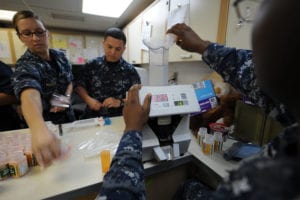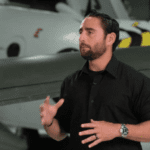An ounce of prevention is worth a pound of cure. No one can dispute these words. It’s the whole basis of preventive medicine (i.e. medical practices that are designed to avert and avoid disease). It’s far better to do what it takes to stay free of germs and not get sick, than to apply all kinds of medication to get well.
Exposure vs Isolation
Yet, that’s not the whole story. It’s also true that exposure to bacteria and viruses is also key to building a resistance against future disease. Dr. Larry Dossey believes that the very germs that attack and penetrate our bodies contribute to our overall health. How? Because these biological attacks help keep our body on its toes. “Our own body,” he writes, “contains the wisdom derived from countless challenges to its integrity. Only through threats to its well-being does the body learn to respond and to be efficient at the business of health.”
The classic example of this was Edward Jenner’s application of the cowpox virus as a vaccination against smallpox. The body’s ability to build resistance against the less serious cowpox also made it resistant to the deadly smallpox. Thus he invented the very first vaccination—against a disease that was killing ten to twenty percent of the population in his day.
The so-called genocide of Native American peoples was mostly the result of disease. Europeans unwittingly brought diseases against which Native Americans had no resistance. Isolation from such diseases for thousands of years proved disastrous.
So there is definite worth to keeping free of germs. There is also value in being exposed to them. We cannot be totally committed to only one or the other concept. Both are critical.
Holiness vs Temptation

This concept carries over into the spiritual realm. Yes, it’s important for us to be holy and separate from sin. “You must be holy, for I am holy” (Lev. 11:44, 45; 1 Pet. 1:16). Jesus commanded us to pray, “Lead us not into temptation, but deliver us from evil” (Matt. 6:13).
On the other hand, temptation and exposure to sin were also part of God’s plan. God allowed Satan and sin to enter the Garden while Adam and Eve were still innocent (Gen. 3). The Holy Spirit led Jesus into the wilderness to be tempted by the devil (Matt. 4:1–11; Luke 4:1–13). Christ’s redemption of humanity from sin was no afterthought. From eternity God had a plan to save us from sin, before human beings ever set foot on this planet and certainly before they ever sinned. Jesus is called “the Lamb of God slain before the foundation of the world” (Rev. 13:8).
And it is certainly apparent that God is in no hurry to remove us from this world of sin. “I do not ask You to take them out of the world,” Jesus prayed to the Father, “but that You protect them from the evil one” (John 17:15).
Preventive Denominations
Trouble in our thinking arises, however, when we become committed to one concept over the other. Christian denominations which stress personal holiness before the Lord tend to proclaim a “preventive medicine message.” “Don’t sin, or else!” In an effort to scare Christians away from sin, these churches portray sin as an unrecoverable calamity. So, instead of emphasizing loving God and our neighbor—which are undeniably the two greatest commandments (Matthew 22:34–40), the emphasis is on avoiding sin at all costs.
Perhaps the greatest danger of the “preventive medicine message” is that Satan can easily use it against us. For, when we fail in some area, the devil can torment us with fears that we’ve done irreparable damage to God’s plan for our lives. “You’ve ruined God’s plan for your life. Things will never be the same. Your sin will have an unstoppable ‘domino effect’ that will unhinge all God’s future plans to use you.”
Can Sin be Redeemed?
Yet, we know from all the biblical accounts of the saints in the Bible that God often uses human failure to achieve His purposes in us and through us. God used Judah’s sin with his daughter-in-law Tamar to humble him and make him more compassionate (Gen. 38; 44:18–34). Though Achan’s sin and the judgment it brought upon Israel were tragic, yet God incorporated them into His strategy against the Canaanite city of Ai (Josh. 8:6).
Where would King David be if sin were completely lethal to the believer? He certainly wouldn’t have remained king. Instead of permitting sin to destroy David, God used his moral failures as a means of humbling and softening him into a man after God’s own heart. No, God uses human failure to be our teacher rather than our undertaker.
Was Peter’s sin of denying the Lord unrecoverable? After all, Jesus had told the disciples, “Whoever denies Me before men, I will deny him before My Father in heaven” (Matt. 10:33). Yet, Jesus forgave Peter’s denial, restored him fully as an apostle, and used his failure to shape and perfect him as the premier spokesman for the gospel (John 21:15–22).
And take a look at Jesus’ genealogy in Matthew 1:1–18? God somehow worked through a string of sinful acts and sinful lives to ultimately bring the Messiah into the world.
Final Encouragement
Friend, God gives commands in the Bible to keep us from sin and the pain it brings. Yet He also gives the stories of flawed peoples’ lives. He does so to remind us that God allows U-turns, that human failure is often His means of teaching us, and that He is able to incorporate our failure into His plan.
PRAYER:
Dear Father in heaven, into Your loving and capable hands I commit myself and the care of my soul. Please create in me a hunger and thirst for righteousness—as well as a loathing for sin. Make my heart, O God, yearn for You and Your nearness. Alert me to the dangers of sin. Yet let me never forget the redemptive power of Your love. Amen.
In article photo: Sailors fill/collect medicine bags aboard USNS Comfort by the U.S. Navy licensed under U.S. Govt. Work









